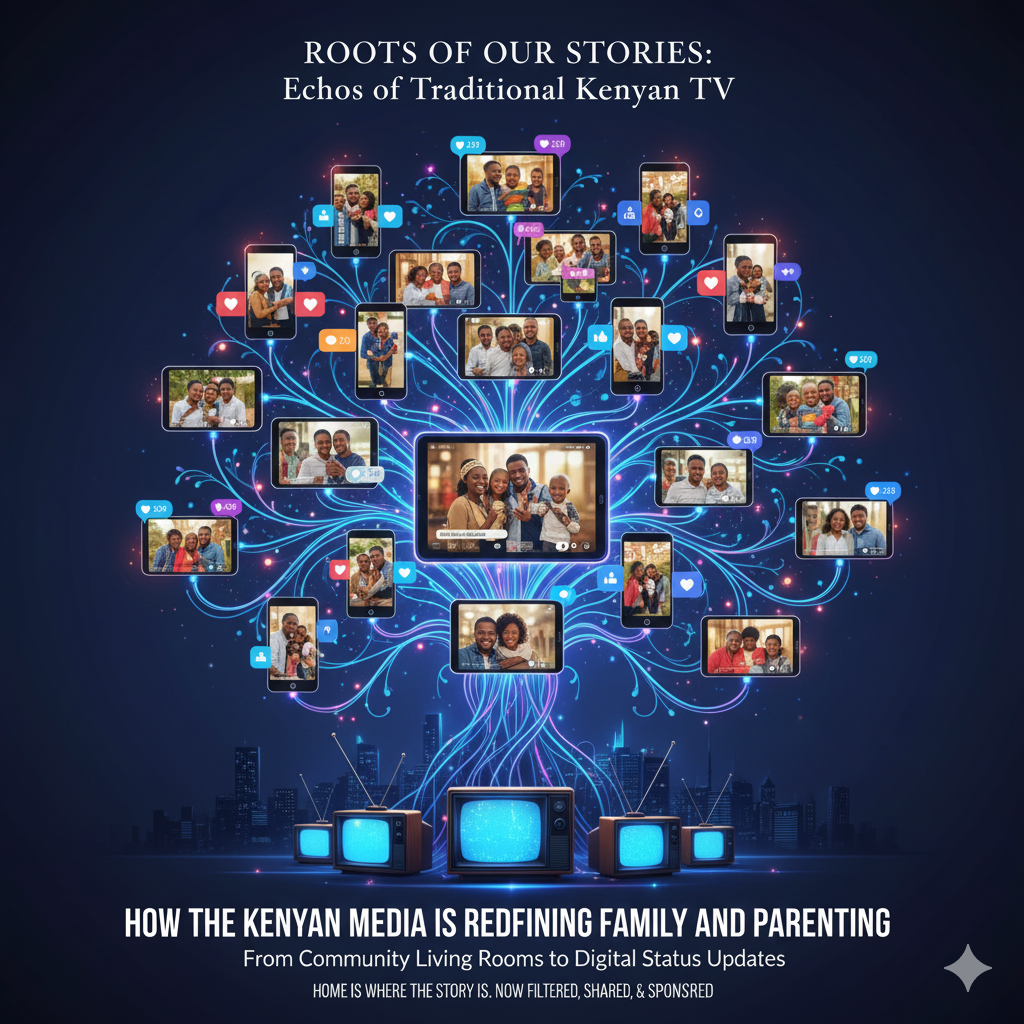Written by Jermaine Magethe
For decades, Kenyan television has invited us into the living rooms of families that felt both familiar and fascinating. From the laughter of “papa Shirandula” to the tears in “Maria”, from the innocence of children in “Machachari” to the chaos in “Mother-in-Law”, these shows have done more than entertain us; they’ve shaped how we see family, parenting, and belonging.
Kenyan dramas and sitcoms have long doubled as moral classrooms. “Machachari” taught us empathy through the eyes of children; how friendship could bridge class divides. “Papa Shirandula” showed the quiet dignity of working-class families, and the pressure to perform success in a society obsessed with status. “Mother-in-Law” gave us laughter as therapy, holding up a mirror to generational conflict and gender expectations.
We all know that blood defines family, but in these stories, family is also about hustle, humor and heartache. For many Kenyans, these characters mirror real conversations around the dinner table, or the stories we live with every day.
Through comedy and conflict, television became a teacher, one that helped us imagine family as both a refuge and a battleground.
But as TV evolves, so does the idea of “family” itself. In the age of streaming and social media, the modern Kenyan family is no longer confined to fictional scripts. Today, celebrity families like the Bahatis, the Murayas, and the WaJesus Family have turned everyday life into an ongoing reality show. Their homes are the new studios; their children, brand ambassadors before they can spell their names.
Parenting has gone public. From pregnancy reveals to toddler birthdays, family milestones unfold in real time before millions of followers. Some see this as empowerment, celebrating transparency and love. Others see it as exploitation of children who are growing up in the shadow of a spotlight they never chose.
The same dynamics that once played out on family TV screens now unfold on Instagram. Yet there’s a twist: while ambition, class, gender roles, and the search for belonging still remain this time, it’s with filters and sponsored posts.
Both scripted and real-life stories reveal Kenya’s ongoing negotiation with identity.
We are a society that values family deeply, but also grapples with its changing shape. The traditional, patriarchal home once glorified on TV is now being challenged by new realities of blended families, single parents, digital co-parenting, and fathers learning to be emotionally present.
At their best, these portrayals offer reflection and healing. They remind us that parenting isn’t about perfection, but presence. At their worst, they risk selling an edited version of love; one where success is measured in followers, not values.
Whether through sitcoms or vlogs, the media doesn’t just show us who we are , it shapes who we’re becoming. When a young viewer sees a father laugh instead of shout, a mother chasing her dreams, or a child speaking with confidence, it stretches what feels possible. But when a toddler’s first steps become branded content, or family conflict is mined for clicks, we lose something tender about the sacredness of home.
As audiences, creators, and parents, perhaps the next step is to balance visibility with responsibility. To tell stories that make us laugh, yes, but also listen. To share our families with pride, but not at the cost of our children’s privacy.
Because the most powerful story we can tell on screen or online is still the simplest one: that love, care, and connection begin at home.

